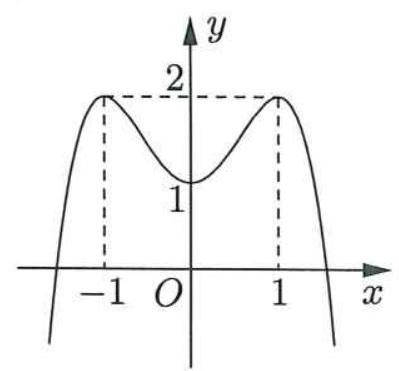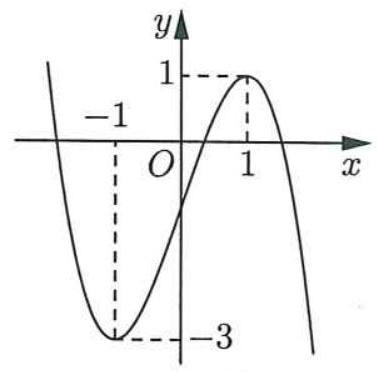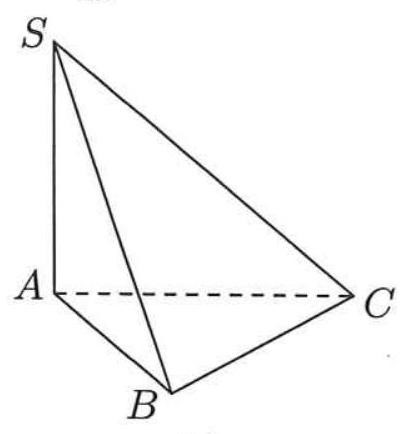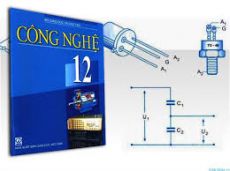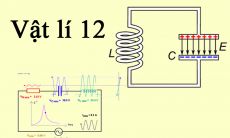Có bao nhiêu cặp số nguyên \(\left( {x;y} \right)\) thỏa mãn \({\text{lo}}{{\text{g}}_3}\left( {{x^2} + {y^2} + x} \right) + {\text{lo}}{{\text{g}}_2}\left( {{x^2} + {y^2}} \right) \leqslant {\text{lo}}{{\text{g}}_3}x + {\text{lo}}{{\text{g}}_2}\left( {{x^2} + {y^2} + 24x} \right)?\)
Suy nghĩ trả lời câu hỏi trước khi xem đáp án
Lời giải:
Báo saiĐiều kiện: \(x>0\).
Ta có:
\(\begin{array}{l} {\rm{lo}}{{\rm{g}}_3}\left( {{x^2} + {y^2} + x} \right) + {\rm{lo}}{{\rm{g}}_2}\left( {{x^2} + {y^2}} \right) \le {\rm{lo}}{{\rm{g}}_3}x + {\rm{lo}}{{\rm{g}}_2}\left( {{x^2} + {y^2} + 24x} \right)\\ \Leftrightarrow {\rm{lo}}{{\rm{g}}_3}\left( {{x^2} + {y^2} + x} \right) - {\rm{lo}}{{\rm{g}}_3}x \le {\rm{lo}}{{\rm{g}}_2}\left( {{x^2} + {y^2} + 24x} \right) - {\rm{lo}}{{\rm{g}}_2}\left( {{x^2} + {y^2}} \right)\\ \Leftrightarrow {\rm{lo}}{{\rm{g}}_3}\left( {\frac{{{x^2} + {y^2} + x}}{x}} \right) \le {\rm{lo}}{{\rm{g}}_2}\left( {\frac{{{x^2} + {y^2} + 24x}}{{{x^2} + {y^2}}}} \right)\\ \Leftrightarrow {\rm{lo}}{{\rm{g}}_3}\left( {\frac{{{x^2} + {y^2}}}{x} + 1} \right) \le {\rm{lo}}{{\rm{g}}_2}\left( {1 + \frac{{24x}}{{{x^2} + {y^2}}}} \right)\\ \Leftrightarrow {\rm{lo}}{{\rm{g}}_3}\left( {\frac{{{x^2} + {y^2}}}{x} + 1} \right) - {\rm{lo}}{{\rm{g}}_2}\left( {1 + \frac{{24x}}{{{x^2} + {y^2}}}} \right) \le 0 \end{array}\)
Đặt: \(t = \frac{{{x^2} + {y^2}}}{x},t > 0\), bất phương trình trở thành: \( \Leftrightarrow {\rm{lo}}{{\rm{g}}_3}\left( {t + 1} \right) - {\rm{lo}}{{\rm{g}}_2}\left( {1 + \frac{{24}}{t}} \right) \le 0{\rm{ }}\left( 1 \right)\)
Xét hàm số \(f\left( t \right) = {\rm{lo}}{{\rm{g}}_3}\left( {t + 1} \right) - {\rm{lo}}{{\rm{g}}_2}\left( {1 + \frac{{24}}{t}} \right) \), có
\(f'\left( t \right) = \frac{1}{{\left( {1 + t} \right)\ln 3}} + \frac{{24}}{{\left( {{t^2} + 24t} \right)\ln 2}} > 0,\forall t > 0\).
Suy ra hàm số đồng biến trên khoảng \(\left( {0; + \infty } \right)\).
Ta có \(f\left( 8 \right) = {\log _3}\left( {1 + 8} \right) - {\log _2}\left( {1 + \frac{{24}}{8}} \right) = 0\)
Từ đó suy ra
\(\begin{array}{l} \left( 1 \right) \Leftrightarrow f\left( t \right) \le f\left( 8 \right) \Leftrightarrow t \le 8\\ \Leftrightarrow \frac{{{x^2} + {y^2}}}{x} \le 8\\ \Leftrightarrow {\left( {x - 4} \right)^2} + {y^2} \le 16 \end{array}\)
Đếm các cặp giá trị nguyên của ( x; y)
Ta có:
Với \(x=1; x=7 \Rightarrow y = \left\{ { \pm 2; \pm 1;0} \right\}\) nên có 10 cặp.
Với \(x=2; x=6 \Rightarrow y = \left\{ { \pm 3; \pm 2; \pm 1;0} \right\}\) nên có 14 cặp.
Với \(x=3; x=5 \Rightarrow y = \left\{ { \pm 3; \pm 2; \pm 1;0} \right\}\) nên có 14 cặp.
Với \(x=4 \Rightarrow y = \left\{ { \pm 4; \pm 3; \pm 2; \pm 1;0} \right\}\) nên có 9 cặp.
Với \(x=8 \Rightarrow y = 0\) nên có 1 cặp.
Vậy có 48 cặp số nguyên \(\left( {x;y} \right)\) thỏa mãn.
Đáp án B

